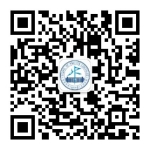Mission
The Overseas Think Tank Research Institute at Southeast University takes advantage of the emerging opportunity afforded by the development of the New Liberal Arts initiative, and is guided by the principles of interdisciplinary research. The institute’s primary focus is on the study of China’s national image and the formulation of strategies to enhance its recognition in foreign nations. Drawing upon the Foreign Languages School’s comprehensive multilingual expertise, the institute systematically tracks and analyzes the activities, reports, and discourses of think tanks from key Western countries across various levels and ideological orientations. This analysis is conducted in conjunction with an understanding of the complex international landscape and China’s domestic and foreign policy framework, with the aim of providing precise, actionable policy recommendations.
Functions
The institute has established a robust research team specializing in the monitoring of China-related public opinion in regions such as the United States, Japan, and Europe. By systematically tracking and analyzing the views expressed by governments, media, academia, and the public regarding China, the institute investigates the sources, content, dissemination pathways, and underlying impact mechanisms of such public opinion. The primary goal is to generate scientific evidence that informs China’s external communication strategies, supports international public opinion risk management, and assists in the development of foreign policy.
Furthermore, the institute is dedicated to supporting national cultural strategies and socio-economic development. Its key research areas include translation theory and practice, intelligent translation, cross-cultural communication, and external publicity translation strategies. The institute emphasizes interdisciplinary collaboration, bridging foreign language studies with fields such as communication, information technology, and engineering. It has developed a distinctive research profile in the philosophy of translation, as well as in the integration of speech recognition technology with translation processes.
Main Research Directions and Representative Achievements
The institute’s principal research areas include:
1.Dynamic tracking and synthesis of China-related information from major think tanks;
2.In-depth analysis of the activities and policy stances of think tanks with regard to China;
3.Examination of the operational mechanisms of major think tanks and their influence on policy decision-making processes.
In recent years, institute members have published numerous scholarly articles in internationally recognized journals, including SSCI and A&HCI indexed publications, as well as in CSSCI journals in China. The institute has also led or participated in over ten national-level research projects, in addition to more than ten provincial and ministerial-level projects. Three policy advisory reports have been formally approved, receiving affirmative recognition from provincial and ministerial leadership. Additionally, the institute has been acknowledged by the Party History and Literature Research Institute for its contributions.



